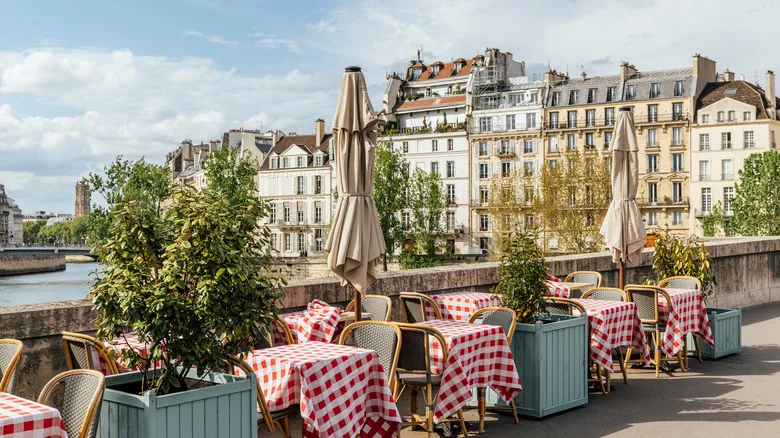When is bon appetit used in France?
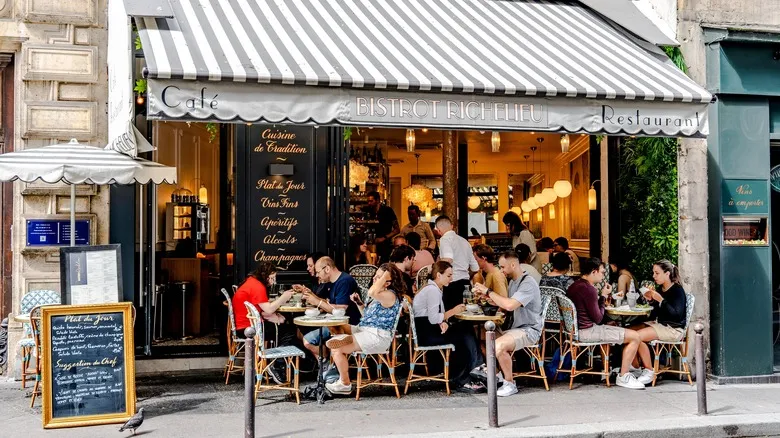
When dining at a restaurant in France, it's typical for waiters to say a particular phrase as they finish serving your meal. The same applies at fast food establishments—when your order is placed on the counter, you'll hear the same expression. At a dinner gathering, everyone might join in unison to announce that the food is ready, signaling that it's time to start eating. It's also customary to say this phrase as you pass by other diners in a restaurant or even to those enjoying a picnic in a park.
While "bon appétit" is the most commonly used expression, there are other similar phrases in French. "Bonne dégustation," which translates to "good tasting," is often used by waiters to encourage diners to savor the flavors of their meal. If you hear "régalez-vous," it means "treat yourself." According to a Reddit discussion on r/france, another popular way to say "bon appétit" is simply to shorten it to "bon app."
So, how should you respond when someone says "bon appétit" to you? If the person is also dining, you can reply with the same phrase. For waiters, cashiers, or passersby who are not eating, a simple "merci" is appropriate.
Etiquette to remember while dining in France
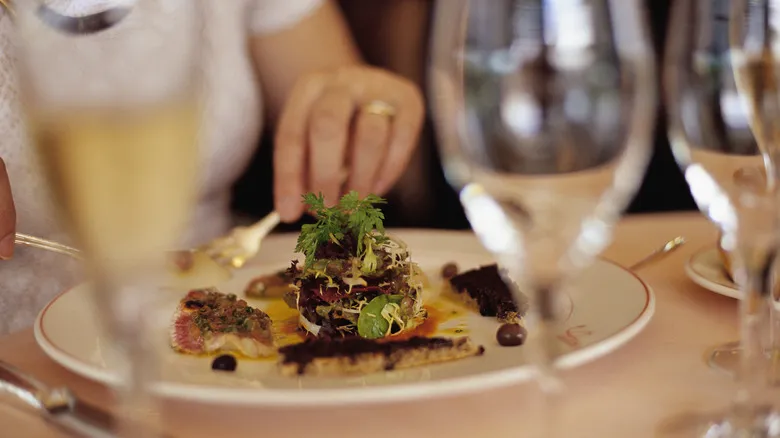
Now that you no longer need to stress about when to say "bon appétit," there are several other dining etiquette rules to keep in mind while eating out or at home in France. Many dining customs in France align with common sense practices found worldwide, such as not chewing with your mouth open or eating too hastily. One particular guideline in French restaurants is to refrain from cutting lettuce into smaller pieces; instead, you should fold it to make it easier to eat.
If you're invited to someone's home for dinner, it's best not to arrive empty-handed. While bringing an unusual side dish might seem odd as a gift, a bottle of wine is always appreciated. When a whole French baguette is offered at the table, tear off a piece for yourself instead of slicing it. In restaurants, baguettes and bread are typically served pre-sliced, and you should wait until the first course is served before eating any of it.
In the United States, we often view a cheese board as the ideal accompaniment to a pre-dinner happy hour or an aperitif. However, in France, ordering a cheese board before dinner or as an appetizer is uncommon, as it is regarded as a digestif. A cheese board is considered an after-dinner dish that is believed to aid digestion, thanks to the probiotics found in cheese.
Recommended

The 3-Ingredient Combo That Packs A Punch In Gordon Ramsay's Avocado Toast
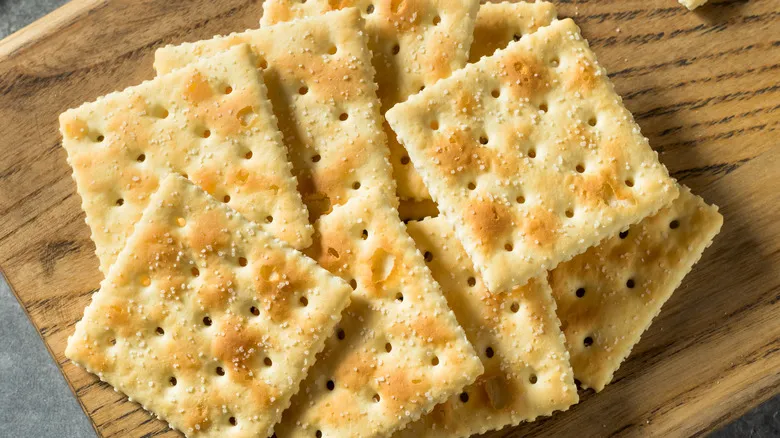
How Ree Drummond Elevates Saltine Crackers

Ash-Roast Your Potatoes For A Game-Changing Smoky Flavor
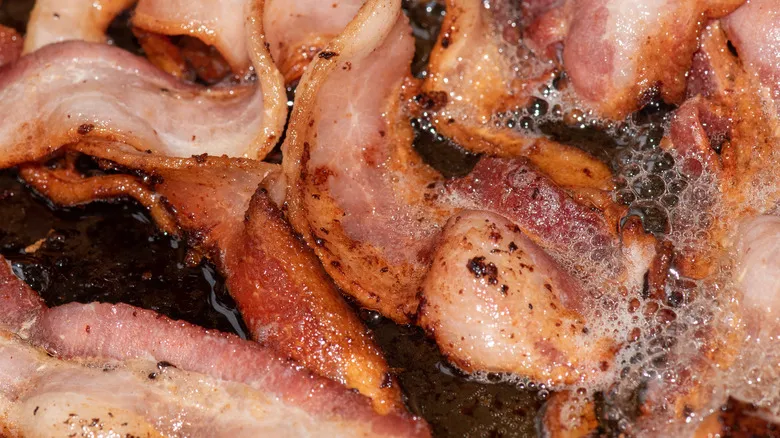
The Pantry Staple That Makes Bacon Crispier Than Ever
Next up

